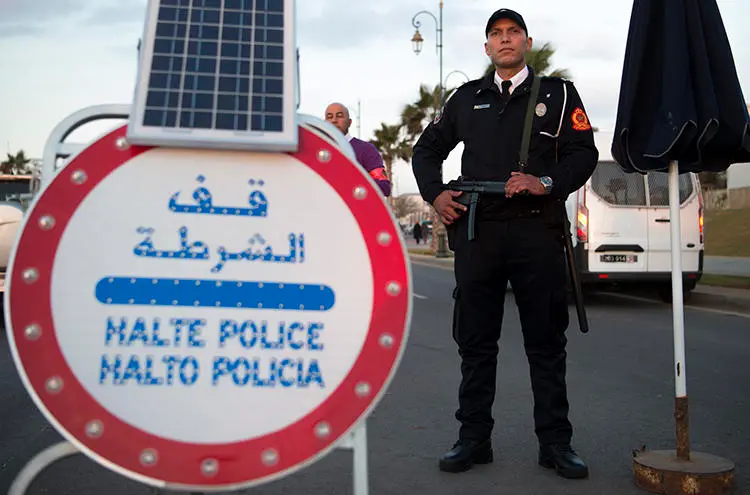On January 2, 2018, a court in Rabat, Morocco’s capital, charged four local journalists with disclosing unpublished information concerning a parliamentary commission of inquiry, according to one of the journalists, Mohammed Ahdad, who spoke with CPJ. On March 27, 2019, the court gave each journalist a six-month suspended prison sentence and a fine of 10,000 dirhams ($2,733), according to Ahdad and local news reports.
The journalists were charged under a provision in the criminal code barring the disclosure of unpublished work by a parliamentary commission of inquiry, according to Ahdad and the news reports.
Ahdad, a reporter with the independent daily newspaper Al-Massae, was charged and sentenced along with Abdelhak Belachger, a reporter at the daily Akhbar al-Yaoum, as well as two journalists from the news website Al-Jarida 24: Kawthar Zaki, a reporter, and Abdallah Sakhir, the Rabat bureau chief, Ahdad told CPJ.
The journalists were not detained while awaiting trial, Ahdad said.
The charges stemmed from a 2017 complaint filed the president of the House of Councilors, Morocco’s upper house of parliament, concerning the journalists’ reporting on alleged corruption within a 2016 parliamentary commission investigating the bankruptcy of the nation’s pension fund, according to Ahdad and the news reports.
The Ministry of Justice did not respond to CPJ’s phone calls or messages sent to its official Facebook page requesting comment.
The journalists were charged by the Court of First Instance, a criminal court in Rabat, under Article 14 of the Parliamentary Commission of Inquiry law, which imposes a prison sentence of one to five years and a fine from 1,000 to 10,000 dirhams ($273 to $2,733) for disclosing information related to the unpublished work of any commission of inquiry within the parliament, according to the House of Representatives’ official website.
Ahdad told CPJ that he believes the journalists should have been tried according to the Journalism and Publication law, a civil code used in cases involving journalists, rather than under the criminal code. The journalists filed an appeal on March 28, and are waiting for the Rabat court to schedule a hearing, Ahdad told CPJ.
In a separate incident on February 15, 2019, authorities in the northern city of Berkane arrested freelance Dutch journalist Gerbert van der Aa and expelled him from the country, according to van der Aa, who spoke with CPJ, and news reports.
Van der Aa traveled to Berkane, in Morocco’s northern Rif region, on February 14 to continue his reporting on protests in the region, which he has been covering since 2016, the journalist told CPJ. Authorities arrested him, said he was “working illegally,” and escorted him to the Spanish Melilla land border later that day, van der Aa told CPJ.
On February 17, van der Aa tried to return to Morocco through the Melilla border and was refused entry by immigration officials on the grounds that he had previously been expelled from the country, van der Aa told CPJ.
He told CPJ that Moroccan authorities have made it extremely difficult to report on the Rif protests or migration issues in the country. Since the Rif protests began in 2016, Moroccan authorities have jailed, arrested, and deported journalists in the region, according to CPJ reporting.
Editor’s Note: This text has been updated to correct the dates that van der Aa was in Morocco and to correct the spelling of his first name.
